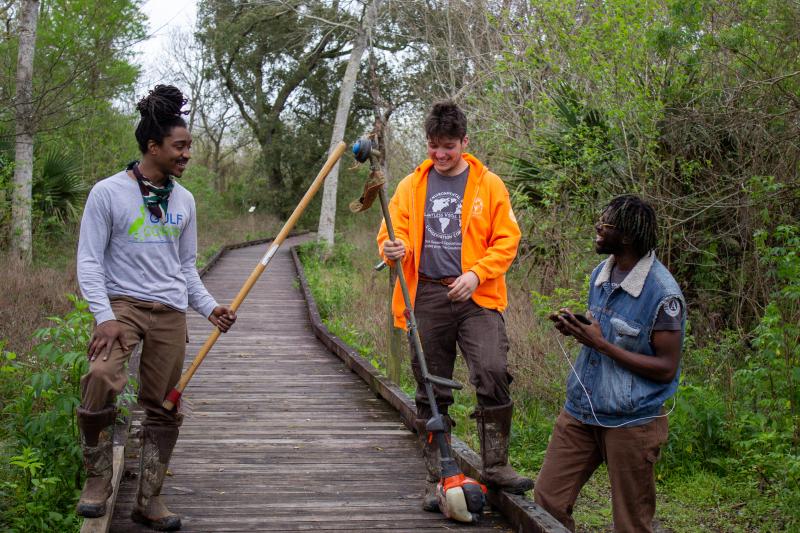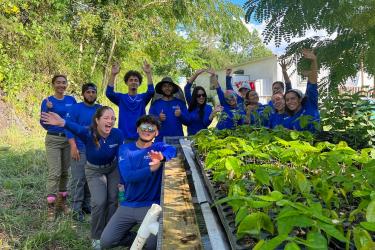Exciting news! The RESTORE Council recently voted to approve $11.9 million for NOAA to continue the award-winning GulfCorps program for four more years. New and returning corps members will be hired into short-term conservation jobs and training this fall.
The funding, along with valuable local and regional partnerships, will lead to almost 250 jobs for young adults to work, gain skills, and graduate from the program. They will help restore and manage more than 6,400 acres of habitat across the Gulf of Mexico coast. Partners are taking additional measures, including working to expand capacity in their programs, potentially leading to a total of 400 or more jobs over four years.
“We appreciate the RESTORE Council’s continued support of GulfCorps, our award-winning program employing young adults to restore habitat in their coastal communities impacted by the Deepwater Horizon oil spill,” said Dr. Paul Doremus, NOAA Fisheries’ Acting Assistant Administrator. “Corps members’ work increases the Gulf’s economic and environmental resilience and gives them skills and training to prepare for long-term natural resource careers."
The program was originally funded by the RESTORE Council for three years starting in 2017, with a fourth year added for 2020–2021. During the first three years, GulfCorps recruited and employed 300 corps members. These young adults completed more than 146,000 hours of service. They performed a range of conservation and restoration projects on local, state and federal lands and waters positively impacting 10,000 acres of habitat. (Results are currently being compiled for the most recent year.) This successful program will continue for four more years and hopefully lead to more awareness and training in habitat restoration careers.
NOAA will continue its key partnerships with The Nature Conservancy, The Corps Network, and Student Conservation Association, which all supported the first four years of the program. Local and regional partnerships with a robust group of organizations representing areas in all five Gulf states from Florida to Texas, will also continue.
Winning Awards and Creating New Opportunities for Participants
The program was recognized by The Corps Network as a Project of the Year, and a GulfCorps crew member as a Corpsmember of the Year in 2019. Meanwhile, Florida A&M University established a STEM scholarship for graduates of the program to continue their education in the science fields.
GulfCorps’ goals of strengthening the talent pipeline of young people entering natural resource fields has been a success as well. Graduates have gone onto jobs at Gulf State resource agencies and conservation organizations. Others have returned to further their skills in leadership positions within the GulfCorps program.
GulfCorps provides young people jobs and training through hands-on natural resource restoration projects benefiting habitat, fish, and wildlife impacted by the 2010 Deepwater Horizon oil spill. From building reefs for oysters, to restoring barrier islands protecting juvenile fish habitat, the GulfCorps program is helping create resilient Gulf environments and communities.
This is one of many conservation corps partnerships at NOAA. The others, in California, Oregon and Washington, are engaging military veterans in conservation jobs to support NOAA’s mission. They’re restoring habitat, producing research, and building their skills and work experience contributing to habitat and fisheries restoration projects.



